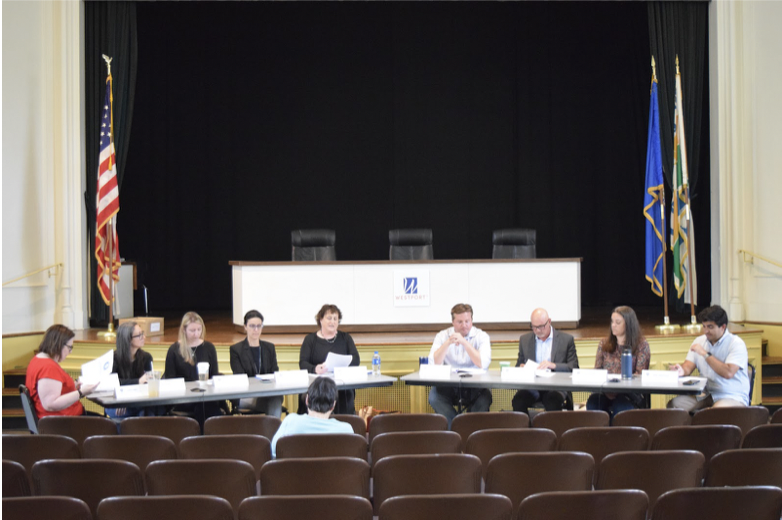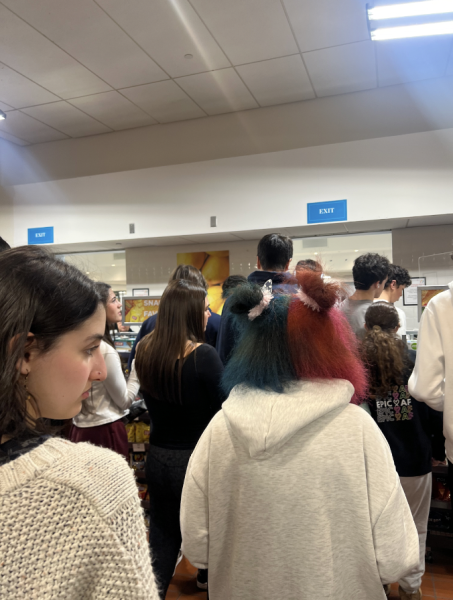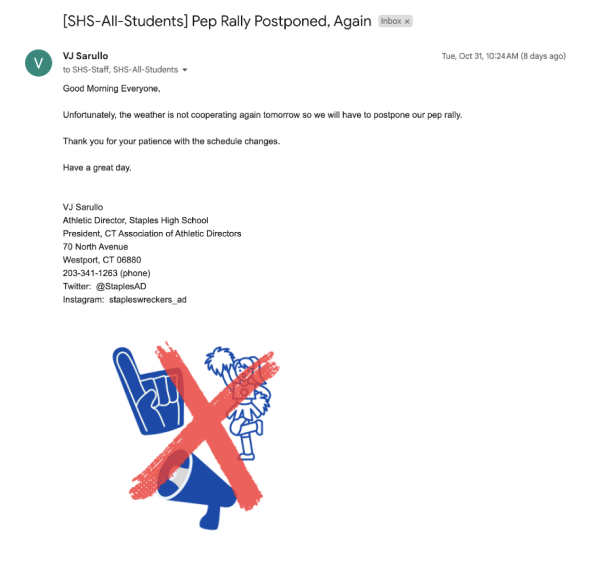Challenged books recommended to remain in school library by Superintendent’s Review Committee
The ad hoc Superintendent’s Review Committee met in Town Hall on April 3 and 17, deciding to recommend to the Superintendent to keep three challenged books in the Staples library. The meetings were working meetings with no public comment. There was lower turnout to the second meeting as the Committee’s decision was previously made at the first, and the second was intended for editing and revising their recommendation letter. Photo taken by Lilly Weisz ’23.
The Superintendent’s Review Committee (SRC) unanimously voted to recommend to the superintendent to retain all three challenged Staples library books after two working meetings in April. Superintendent Thomas Scarice has not yet come to a decision.
In their meeting on April 3, the SRC felt that the books held educational value and were age-appropropriate, even with, for example, scenes of bullying with explicit language and slurs and masturbation as in the graphic novel “Flamer” by Mike Curato.
As the book is a lived experience of an LGBTQ+ person, the committee acknowledged that these scenes were true to life, with many online reviews describing how the book saved them from suicide. They also felt that the struggles of the book’s characters were “empathetic” even to non-LGBTQ+ audiences, similar to other coming-of-age books in the Staples library.
“I think that people who want to ban the book… referred to [it] as vile, vulgar, smut. And to me it’s a memoir,” SRC member and social studies teacher Carol Kaye said. “So if the book is being labeled with those terms, this human being is being labeled with those terms, and I find that to be incredibly problematic.”
The SRC also found that another challenged book, “This Book is Gay” by Juno Dawson, is suitable for the Staples health curriculum, and that “Gender Queer” by Maia Kobabe and “Flamer” offered “important messages of hope.” The three challenged books, all of which discuss LGBTQ+ topics, have also all received multiple literary awards and were approved by the American Library Association and the American Association of School Librarians.
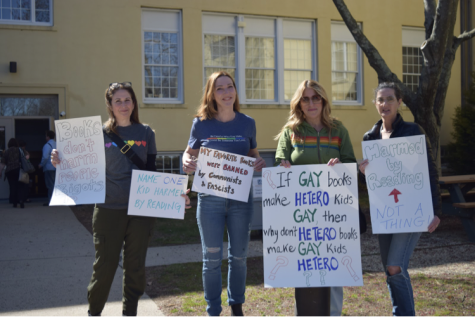
In the SRC’s second meeting April 17, the committee edited and revised their letter of recommendation to the Superintendent. The final letter will be published publicly, as have other documents from previous SRC meetings and hearings. The committee took particular note to link all previous documents in the final recommendation so readers can access all documents from one place.
“I saw value in having a consolidated spot to have all of that information put together to make it easier for the public, given the high level of public interest in this topic,” Committee Chair Elaine Whitney said.
Some members of the community attended with signs to show support for keeping the books in the Staples library. Whitney requested that the signs not be displayed during the meeting. She explained while permissible outside the meeting space, BOE policy disallows expression by the public, such as booing and clapping, which may make other members of the public uncomfortable to express their own views.
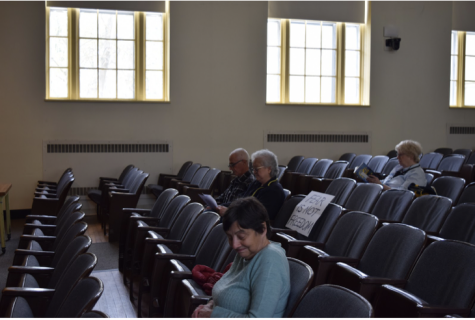
The committee met to make edits to the recommendation on April 17. The SRC has sent the recommendation, and Scarice has 10 days from the time of receipt to write a disposition to the parties involved in the case, being Principal Stafford W. Thomas Jr. with library media specialists Jennifer Cirino and Nicole Moeller and the complainant Tara McLaughlin. Within 30 days of the disposition, the BOE can receive an appeal to the superintendent’s decision.
“If it does go to the Board of Education,” Whitney said, “that is the best, most appropriate venue for the elected officials of the Board of Education to consider [public comment] because they’re ultimately making the final decision if [the Superintendent’s decision] were to be appealed.”

Creative Director Lilly Weisz ’23 has no hesitation when it comes to helping out with anything Inklings related. When Weisz originally joined Inklings,...












































